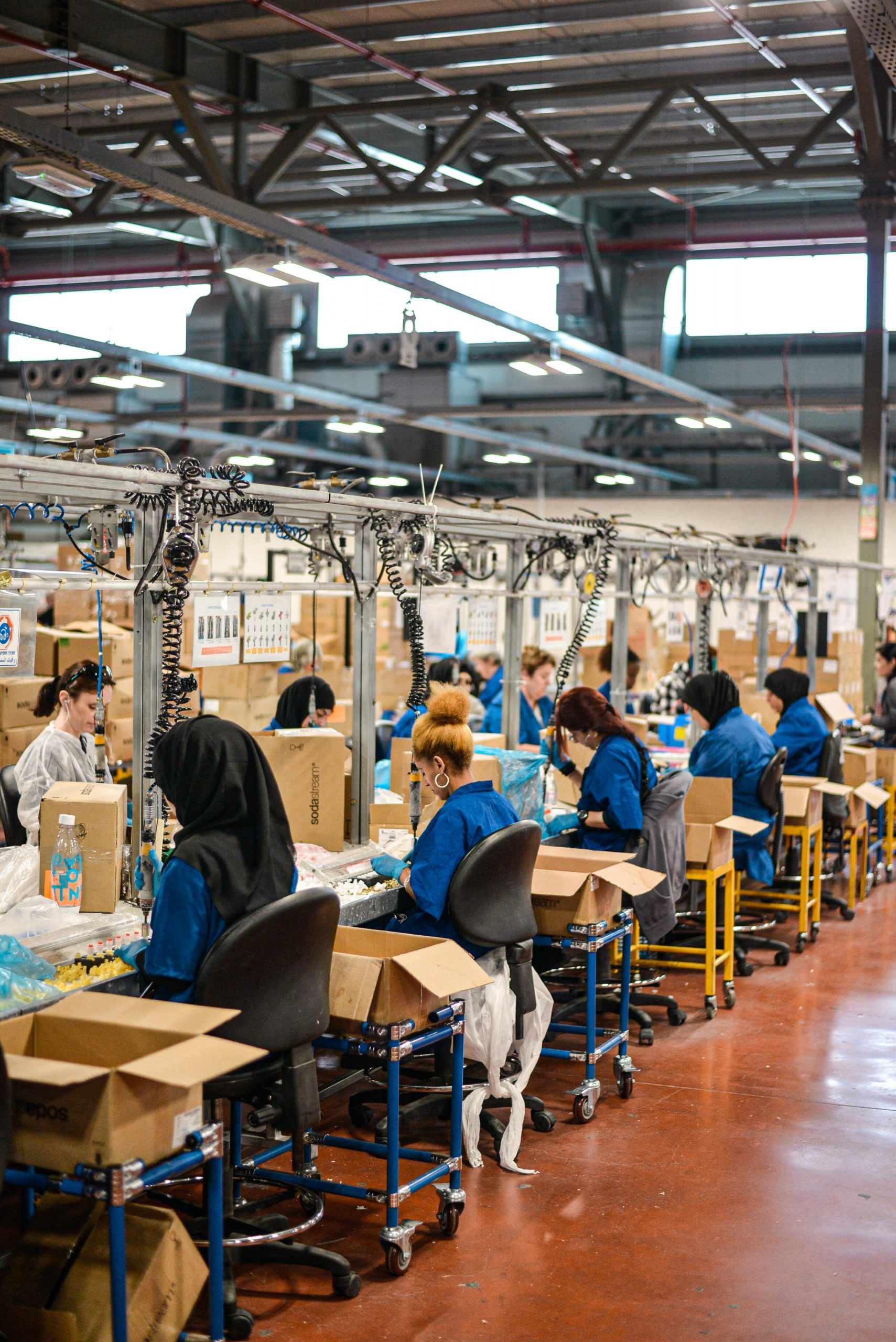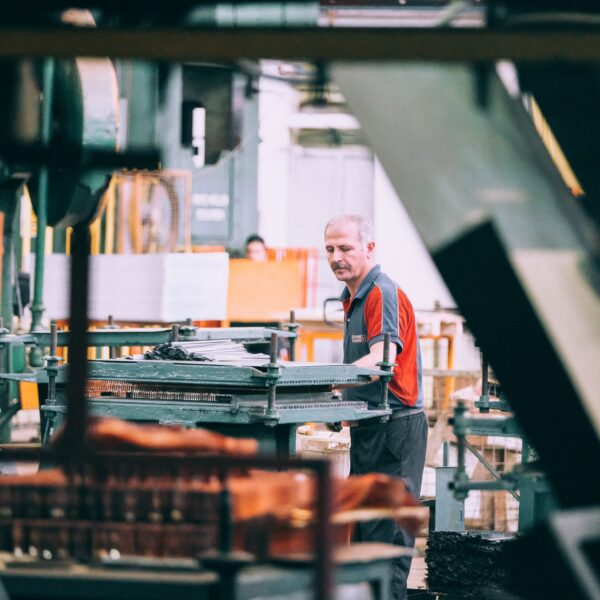If you’re an early stage or young consumer product goods (CPG) company, you’ll know that there’s a certain stage you’ll reach in your growth journey where you’ll probably be looking to scale up your production to maximize on sales and profits.
We’ve already talked about how hiring a CPG broker can help in pursuing high growth, but another part of scaling up is working with a co-packer, in order to reach the next stage in your company’s growth capacity.
In this article, you’ll learn what to look for in a co-packer, common pitfalls to avoid and how to make the best of the brand/co-packer relationship.
What is a Co-Packer?
Before we delve into the world of copackers, let’s first break down what this actually means. A co-packer, or a contract packer, is a company that manufactures and packages a certain product for a client. Co-packers tend to produce the product, create specialized packaging, and build displays for your products.
It allows new or small businesses to outsource their manufacturing without having to invest money they don’t have into their own production settings. Startups and small businesses can find their teams spread pretty thin with production and manufacturing alone, which leaves very little time to focus on anything else in the business. Co-packers can help these businesses free up a considerable amount of time, allowing them to focus on building and growing their business instead.
And it isn’t just startups who work with co-packers, but your Fortune 500 companies too. Owning and managing your own manufacturing facility, with equipment and skilled staff, gets expensive and rather time consuming. So, companies of all sizes are turning to co-packers for help.
What to Consider When Identifying a Co-Packer to Work with
Your company will have its own unique set of needs, and so the first thing to do before finding a co-packer for your business is to establish what your current needs are as a business. That way, you’ll be a lot clearer on what exactly you want from a copacker and be able to communicate this effectively to potential partners.
One area of your business to look into is how much support you need when it comes to producing your products. Do you need a co-packer to manufacture your products from scratch? Do you need them to also store and ship your products? Or do you just need them to package up your products? These are just some of the questions to ask yourself when it comes to figuring out what it is you need from a co-packer.
The next area to look at when identifying a co-packer to work with is the individual minimum runs. Co-packers tend to have minimum runs for products, and so you want to be able to know if your chosen co-packer will be able to produce the amount of product you need. Going too high or too low will mean you either end up with too much inventory or not enough to justify the expense.
A co-packer’s quality and safety records are also hugely important. You want to be confident and assured that your copacker will be able to produce and package your products in the best and safest way possible. This includes knowing things like what methods of quality control they have, what equipment they use, and what their health and safety procedures are in their facilities.
How Do You Know When You’re Ready to Work with a Co-Packer?
There are a number of factors that, when aligned, could mean that you’re ready to approach and work with a co-packer. Some of these factors are that:

Your Product is Scalable
Manufacturing your product in a home or flexible commercial setting is very different to manufacturing your product on a mass scale. Where in your usual setting, you could experiment or be a little flexible with the components or processes, this flexibility doesn’t exist when scaling up. And so, you need to ensure that your product can be scaled up to mass production, whilst maintaining the quality you want. This means you have to be incredibly precise in your instructions, with no ambiguous factors in the process that could be confused or altered along the way.
You Project Enough Demand
After establishing whether your product can be scaled up, it’s time to figure out whether there’s enough demand for this scaling up. Even the smallest co-packers require a minimum run of products, which can be in the hundreds, if not the thousands, of units. And so, if your current demand isn’t high enough to meet their minimum run, you’re probably looking at an investment that is not worth your while.
However, when looking at your demand, it’s worth looking further down the road for your business. And this is because your current demand may not be the demand you’ll see in say a few months when the peak season or holiday rush comes around. It may be that your demand will be enough to cover your chosen co-packer’s minimum run, and so will be a viable option for your business.
You Have Enough Money
Having the capital to actually make the investment is arguably the most important factor in knowing if you’re ready to work with a co-packer. Because co-packers are taking on such a significant part of your business, it comes with a relatively big price tag. If the demand in your products is high enough and you have the capital to fund a partnership with a co-packer, then this investment will save you money, time, and resources in the long run. Plus, making use of the bulk-manufacturing capabilities of a co-packer results in a lower cost per unit.
You’ve Done the Research
Even if your product is scalable and you have the necessary demand and capital, that doesn’t mean you’re automatically ready to work with a co-packer. As we’ve already mentioned, finding a co-packer involves familiarizing yourself with how they work and operate, and figuring out what you need from a co-packer relationship. Knowing what you need from a co-packer will make prospective meetings with them that much easier as you can communicate your needs and also answer any questions or queries they may also have regarding your business. These don’t have to be concrete answers, but co-packers will appreciate that you’ve gone away and thought about this before launching straight into choosing a co-packer.
How to Build a Good Co-Packer Relationship from the Start

Choose the Right Co-Packer
Researching co-packers can be quite the task with an endless number of options cropping up in your search. So, how do you know which one is the right co-packer for you? Word of mouth is key! Ask your trusted sources about which co-packers they’ve worked with and would recommend, and go from there. You can also seek out any industry associations you’re a part of and ask around to see what co-packers are familiar within your industry.
Once you have a few co-packers in mind, set up some meetings and ask them about their current clients and the work they’ve done for them. This will help you gauge things like whether they specialize in your region or industry, whether they represent your competitors, and whether their style of working will be a good fit for you and your business.
Clear and Regular Communication
A good relationship with a co-packer doesn’t just end with the signing of a contract, it requires regular maintenance through the form of clear, consistent, and regular communication. This begins with setting clear expectations from both the copacker and you so that both sides of the relationship are clear in what is expected of each other. And throughout the relationship, regular contact is vital to ensure things are running as smoothly as possible, so that if any issues do arise, they are dealt with quickly and efficiently.
Learn the Manufacturing Process
You may also find it particularly useful to learn how your co-packer processes work, so that you have a much better understanding of exactly what work is being done, timescales, and the level of quality being achieved. This could lead to both a fruitful relationship with your co-packer and producing the best possible product for your business. A win-win. One area of the manufacturing process that might be worth prioritizing is learning the copacker industry jargon. Knowing exactly what your copacker is talking about will clear up many issues and blockages along the way!
Need More Help with Finding a Co-Packer?
It can be tricky to find the right copacker for your business, but fear not! You don’t have to do this alone. Simple Startup is here to help with understanding how copackers work, figuring out if your business is ready to take on a co-packer, and finding the right co-packer for you. And so, if you haven’t started looking yet or you’ve started your search and simply got lost in the research, grab some time on our calendar and see how we can support you today.





